Romeo
and Juliet
Sergei Prokofiev / Krzysztof Pastor
-
Act I
ca. 50 min.
-
Intermission
20 min.
-
Act II
1 h
Duration: 1 h 10 min.
- See photo: fot./photo: Ewa Krasucka
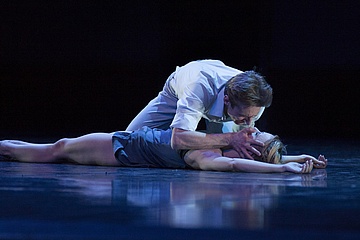
- See photo: fot./photo: Ewa Krasucka
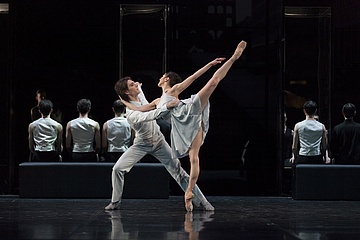
- See photo: fot./photo: Ewa Krasucka
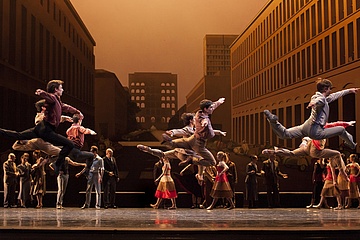
- See photo: fot./photo: Ewa Krasucka
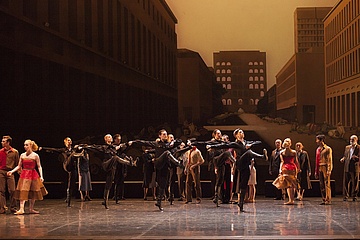
- See photo: fot./photo: Ewa Krasucka
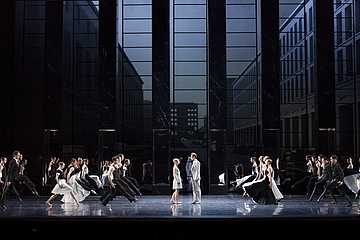
- See photo: fot./photo: Ewa Krasucka
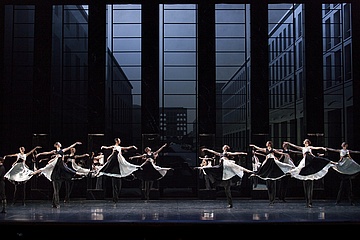
- See photo: fot./photo: Ewa Krasucka
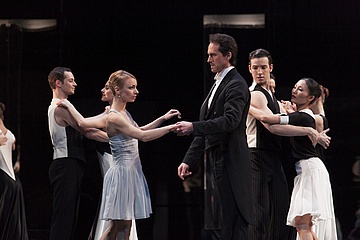
- See photo: fot./photo: Ewa Krasucka
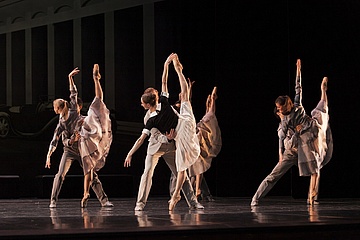
- See photo: fot./photo: Ewa Krasucka
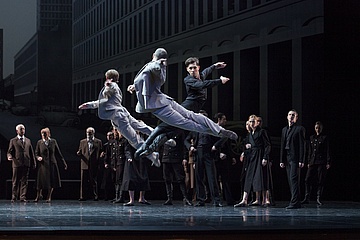
- See photo: fot./photo: Ewa Krasucka
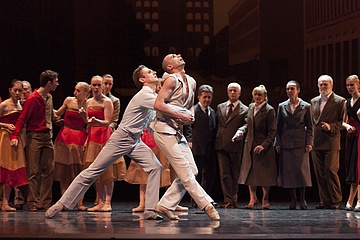
- See photo: fot./photo: Ewa Krasucka
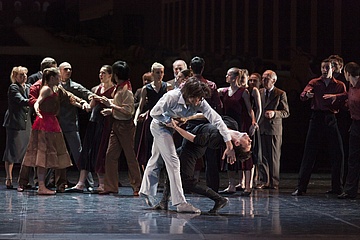
- See photo: fot./photo: Ewa Krasucka
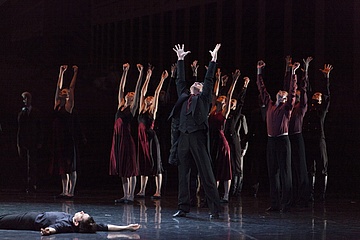
- See photo: fot./photo: Ewa Krasucka
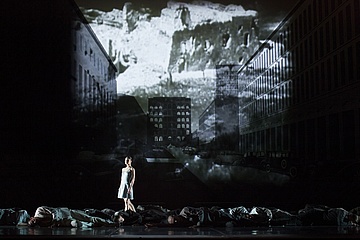
- See photo: fot./photo: Ewa Krasucka
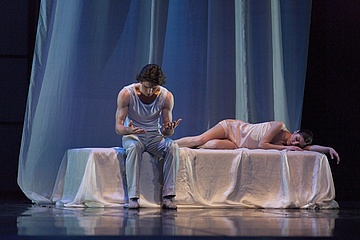
- See photo: fot./photo: Ewa Krasucka
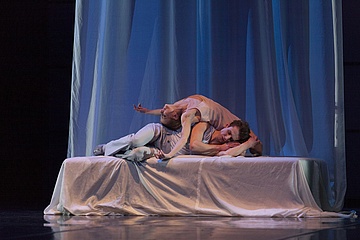
- See photo: fot./photo: Ewa Krasucka
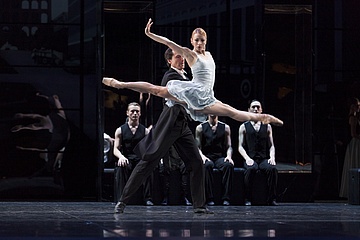
- See photo: fot./photo: Ewa Krasucka
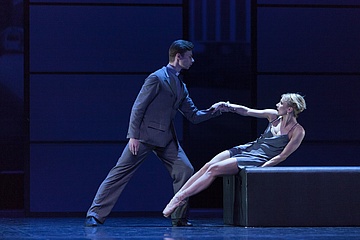
- See photo: fot./photo: Ewa Krasucka
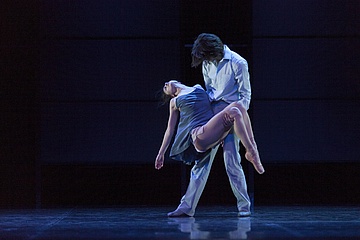
- See photo: fot./photo: Ewa Krasucka
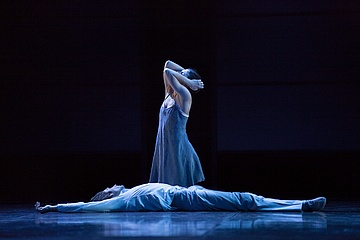
- See photo: fot./photo: Ewa Krasucka
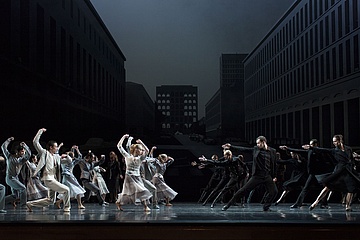
- See photo: fot./photo: Ewa Krasucka
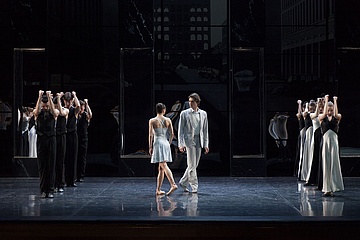
- See photo: fot./photo: Ewa Krasucka
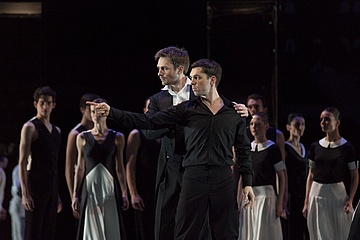
- See photo: fot./photo: Ewa Krasucka
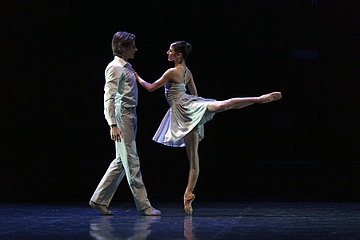
- See photo: fot./photo: Ewa Krasucka
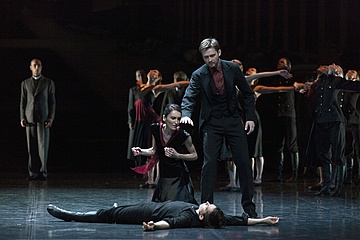
- See photo: fot./photo: Ewa Krasucka
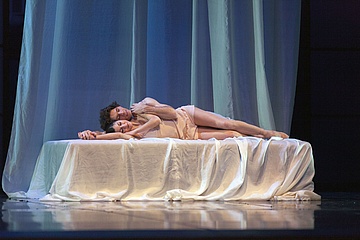
- See photo: fot./photo: Ewa Krasucka
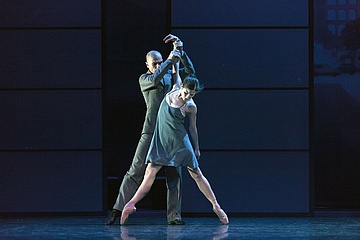
- See photo: fot./photo: Ewa Krasucka
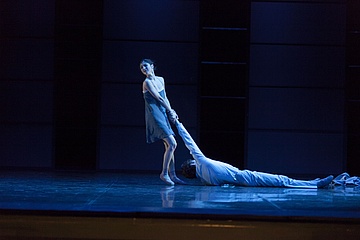
- See photo: fot./photo: Ewa Krasucka
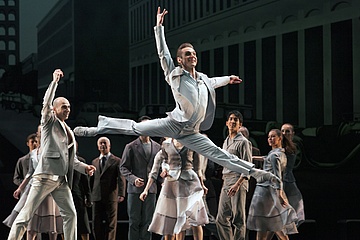
- See photo: fot./photo: Ewa Krasucka
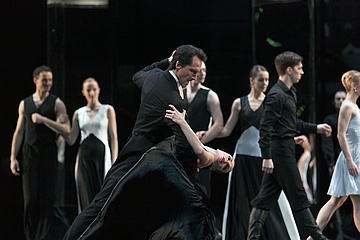
- See photo: fot./photo: Ewa Krasucka
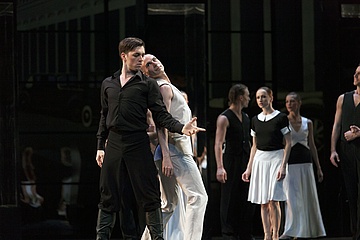
- See photo: fot./photo: Ewa Krasucka
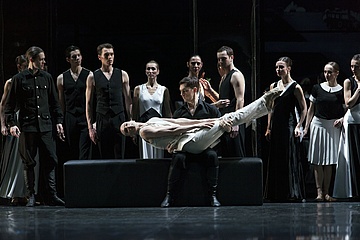
- See photo: fot./photo: Ewa Krasucka
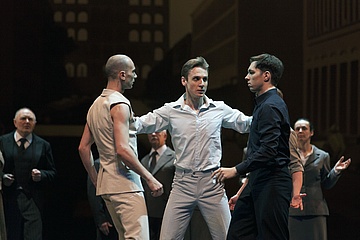
- See photo: fot./photo: Ewa Krasucka
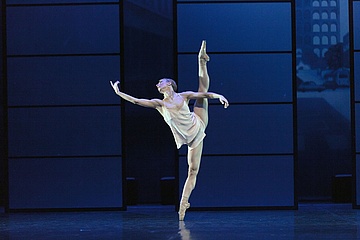
- See photo: fot./photo: Ewa Krasucka
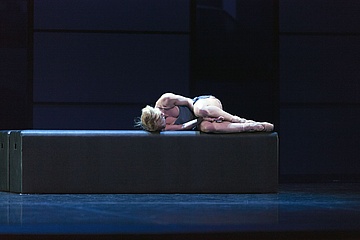
- See photo: fot./photo: Ewa Krasucka
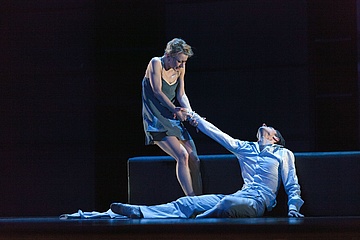
- See photo: fot./photo: Ewa Krasucka
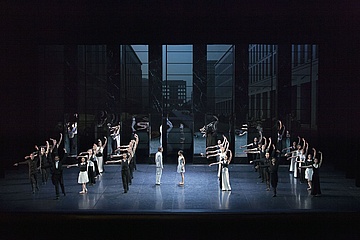
Ballet in three acts
Libretto: Krzysztof Pastor, Willem Bruls after William Shakespeare
Premiere: 7 March 2014
Romeo, Juliet and their love doomed due to an unending conflict: we are all familiar with the moving story from William Shakespeare’s play and Sergei Prokofiev’s ballet. Krzysztof Pastor, however, moves the plot into the ever-changing reality of the 20th century and proposes his own original vision. He replaces the square in Verona with the streets of Rome and dresses the Renaissance characters in contemporary costumes. Romeo and Juliet’s love continues on and on, tragically helpless in the face of destructive events in the outside world. The choreographer raises some tough and painful issues: dictatorship, war, terror, in whose shadow Romeo and Juliet experience throes of passion. Dynamic choreography, spectacular sets, an original dance language and expressive interpretations from the Polish National Ballet’s dancers add up to a show that is thoroughly modern, electrifying.
Cast
-
- Juliet Capulet
- Mercutio
- Capulet
- Lady Capulet
- Benvolio
- Friar Laurence
-
- Juliet’s Friend No.1
- Juliet’s Friend No.2
- Pâris
- Romeo Montague
- Tybalt
-
- Juliet Capulet
- Romeo Montague
-
Capulet
 Robert Bondara
Robert Bondara - Lady Capulet
- Benvolio
- Friar Laurence
-
-
Juliet’s Friend No.1
- Juliet’s Friend No.2
-
Mercutio
 Kurusz Wojeński
Kurusz Wojeński - Pâris
- Tybalt
-
-
- Juliet Capulet
- Mercutio
- Capulet
- Lady Capulet
- Benvolio
- Friar Laurence
-
- Juliet’s Friend No.1
- Pâris
- Romeo Montague
- Juliet’s Friend No.2
- Tybalt
-
- Juliet Capulet
- Romeo Montague
- Lady Capulet
- Benvolio
- Friar Laurence
-
Juliet’s Friend No.1
-
-
Mercutio
 Kurusz Wojeński
Kurusz Wojeński -
Capulet
 Robert Bondara
Robert Bondara - Juliet’s Friend No.2
- Pâris
- Tybalt
-
-
- Juliet Capulet
- Romeo Montague
- Mercutio
- Tybalt
- Capulet
- Lady Capulet
-
- Benvolio
- Friar Laurence
- Juliet’s Friend No.1
- Juliet’s Friend No.2
- Pâris
-
- Juliet Capulet
- Romeo Montague
- Tybalt
-
Capulet
 Robert Bondara
Robert Bondara - Lady Capulet
- Benvolio
-
- Friar Laurence
-
Juliet’s Friend No.1
- Juliet’s Friend No.2
- Pâris
-
Mercutio
 Kurusz Wojeński
Kurusz Wojeński
-
- Juliet Capulet
- Romeo Montague
- Tybalt
- Capulet
- Lady Capulet
- Benvolio
-
- Friar Laurence
- Juliet’s Friend No.1
- Juliet’s Friend No.2
- Pâris
- Mercutio
Credits
-
- Choreography
- Set and costume designer
- Dramaturgy
- Assistant choreographer
- Lighting
- Conductor
-
- Choreography
- Set and costume designer
- Dramaturgy
- Assistant choreographer
- Lighting
- Conductor
-
- Choreography
- Set and costume designer
- Dramaturgy
- Assistant choreographer
- Lighting
- Conductor
-
- Choreography
- Set and costume designer
- Dramaturgy
- Assistant choreographer
- Lighting
- Conductor
-
- Choreography
- Set and costume designer
- Dramaturgy
- Assistant choreographer
- Lighting
- Conductor
-
- Choreography
- Set and costume designer
- Dramaturgy
- Assistant choreographer
- Lighting
- Conductor
-
- Choreography
- Set and costume designer
- Dramaturgy
- Assistant choreographer
- Lighting
- Conductor
Polish National Ballet
Orchestra of the Teatr Wielki – Polish National Opera
Synopsis
-
Introduction
Romeo and Juliet are the archetypical tragic forbidden lovers. Their families, friends, gangs and conflicting religious beliefs force them to conceal the love of their lives. Although the personal journeys of both Romeo and Juliet are integral to the tale, this is a love story within a clear social and political context – the collective identity of the group is considered more important, and the lovers are destined to lose.
This is a story of parents, children and grandchildren, and especially of a younger generation that tends to suffer and even die from the mistakes and misfortunes of a previous one. Theirs is a tragedy that repeats endlessly, a continuous wheel of violence that flows from one generation to the next. In this story the conflict is between the Montagues and the Capulets, but it could as easily be between a Catholic and a Protestant, or a Muslim and a Jew. Divisions and conflicts, walls and wars are timeless.
Prokofiev's score is a profound analysis of Shakespeare's play, albeit in notes and tones. The universal qualities he brings to the story allow us to look at what might happen to the work if we pin it to a certain time, period or space. Therefore Shakespeare's Renaissance Verona becomes 20th century Italy, a century with three or four generations whose personal lives are moulded by the hostilities of the previous era.
We begin our tale in the 1930s, a time when a rigid dictatorial system had taken over the country. Capulet and his family represent this system. After the eruption of the conflict during the war, we find ourselves again in the optimistic post-war 1950s, where the more peaceful Montagues try to re-establish society. But even then the smouldering hate of the two families lurks under the serene surface. Another explosion of enmity seems unavoidable. Even at the end of the century, in the 1990s, Romeo and Juliet are still alive, to die again as victims of the never-ending curse that comes with hatred and strife.
-
Act I
Scene 1
A street in Italy, sometime in the 1930s. Two rival families, the Capulets and the Montagues, dominate city life, but their feud seems to have calmed for the moment. Everyone takes part in the ritual evening walk. A sudden commotion occurs as a group from the Capulet family crosses the street, threatening to disrupt the evening's harmony. Romeo and Benvolio and their friend Mercutio watch but decide to keep their distance for now. Capulet and Tybalt, the leaders of the Capulet group, also appear. The tension seems to rise again between the two families and a fight is unavoidable. Friar Lawrence appeals for them to stop, warning them about the possible tragic consequences of such public aggression.
Scene 2
Juliet, accompanied by her friends, prepares herself for the upcoming ball. It will be her first introduction into the world of the adults and her mother is worried about her daughter's oncoming departure from childhood and the innocence it guards.
Tybalt and other invited guests from the Capulet family arrive and are welcomed by Juliet's mother. Romeo, Benvolio and Mercutio, who were not invited, sneak into the ballroom. Lord Capulet enters the ballroom and at once the guests are overwhelmed by his dominant presence.
Romeo and Juliet see each other for the first time and there is an obvious attraction between them. Juliet's father persuades her to dance for the other men, he is looking for a suitable husband for her. Tybalt, seeing that Romeo is fascinated by Juliet, decides to intervene, but Mercutio, who has also witnessed Romeo's attraction, deflects Tybalt's actions to protect his friend.Romeo and Juliet seek each other out, and, when they finally manage to steal a moment alone, Romeo asks Juliet to dance for him. At first she dances in the same way she had for the other men, but this is not what Romeo wants – he wants her to trust him. The two are falling in love with each other but as this would be anathema for both clans, Capulet and Tybalt turn against Romeo and he and his friends are thrown out of the house. Later, outside of the Capulet house, Romeo comes to find Juliet and when they meet they confess their love for each other. They eventually part with the ominous feeling their families, deadly rivals as they are, will never approve of their love.
-
Act II
Scene 1
A street in Italy, sometime in the 1950s. Everyone takes part in the ritual evening walk. As the Capulets parade Mercutio and Benvolio are leading the Montagues in festive mood. Romeo is wandering around aimlessly – he is in love with Juliet. He is excited to receive a message from Juliet's friends. She will meet Romeo with Friar Lawrence.
Scene 2
Despite his reservations, Friar Lawrence unites the two in a secret wedding ceremony.
Scene 3
Again the people fill the street. The Capulets, led by Tybalt, march by. The tension is rising again. Romeo interrupts an argument between Tybalt and Mercutio. He wants to maintain the peace, but they start to fight with each other anyway. Tybalt kills Mercutio, stabbing him in the back. Desperate and enraged, Romeo attacks Tybalt and dispatches him in a lethal duel. Both families watch.
-
Act III
Scene 1
Italy, sometime in the 1990s. The lovers have spent the night together in Juliet's bedroom – their only oasis in a forbidden love. The real world, however, continues to pervade their private space and Romeo is haunted by his slaying of Tybalt. Juliet absolves him, but eventually Romeo must leave.Juliet's mother enters the room – the day has come when Juliet is expected to announce her decision as to whom she will marry, and both women are anxious. Juliet's father enters, accompanied by several men, each possible suitors for Juliet's hand. She is required to dance for them once more and this time she is even more distraught. Her father and the men leave the room and Juliet is left once more alone with her mother. Inconsolable, she begs for her mother's help, a way out to escape this sentence imposed by her father, but her mother is duty bound by her name and cannot help. Juliet realises she must seek the help of Friar Lawrence, possibly her only hope.
Scene 2
Juliet is driven to despair. At her rendezvous with Friar Lawrence, he suggests that she takes a potion that will put her in a long death-like sleep, explaining that if her family and friends discover her lifeless body they will assume she is dead, and she will be free of her bounds. Juliet agrees and the Friar promises he will tell Romeo of this deception so that he may join her and they can escape to be together.
Left alone, Juliet swallows the potion and faints. She is discovered by a group of friends and family who at once begin to grieve her death.
-
Epilogue
Friar Lawrence has been unable to deliver the message to Romeo in time. Romeo returns to discovers Juliet's body and, believing she is dead, is consumed by grief. If he cannot be with her, he does not want to live. Clutching the dagger he used to kill Tybalt, he plunges it into his chest and dies beside her. As Juliet awakes from her sleep, her eyes focus on Romeo's lifeless body. Her true love has been taken from her and with a deep longing to be with her husband for one last, eternal time. She takes Romeo's dagger and takes her own life. Both families, touched by grief, prepare the bodies for burial.
Krzysztof Pastor and Willem Bruls
Sponsors
-
Mecenas Teatru Wielkiego - Opery Narodowej
-
Partnerzy Teatru Wielkiego - Opery Narodowej
-
Partner Festiwalu Szekspirowskiego
-
Partner Polskiego Baletu Narodowego
-
Patroni medialni Teatru Wielkiego - Opery Narodowej
-
Partners of Teatr Wielki – Polish National Opera
-
Partner Festiwalu Szekspirowskiego
-
Partner of Polish National Ballet
-
Media patrons of Teatr Wielki – Polish National Opera





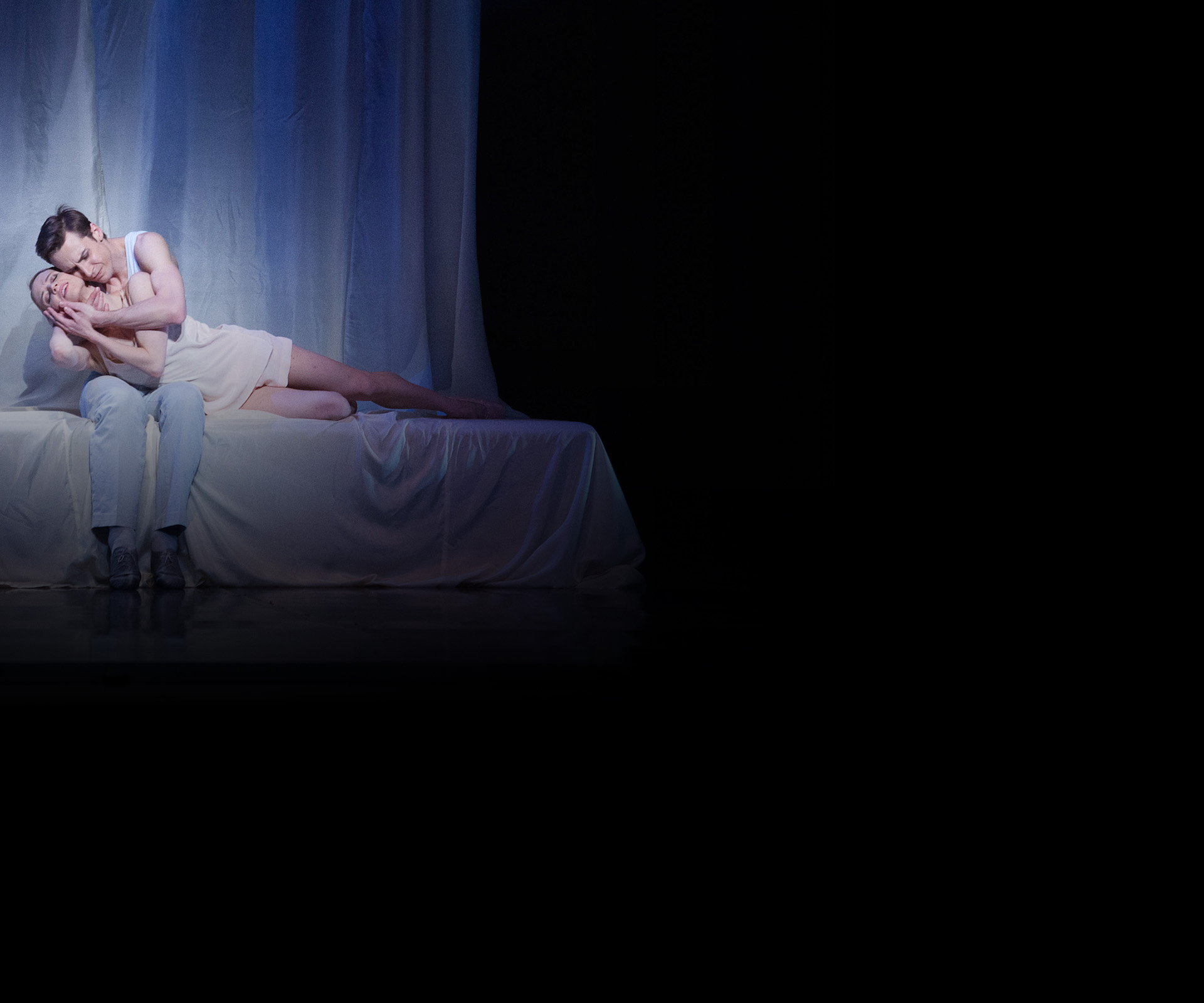
 Yuka Ebihara
Yuka Ebihara ![[Translate to English:]](/fileadmin/import/uploads/tx_news/Carlos_Martin_Perez_new_02.jpg) Carlos Martín Pérez
Carlos Martín Pérez  Wojciech Ślęzak
Wojciech Ślęzak 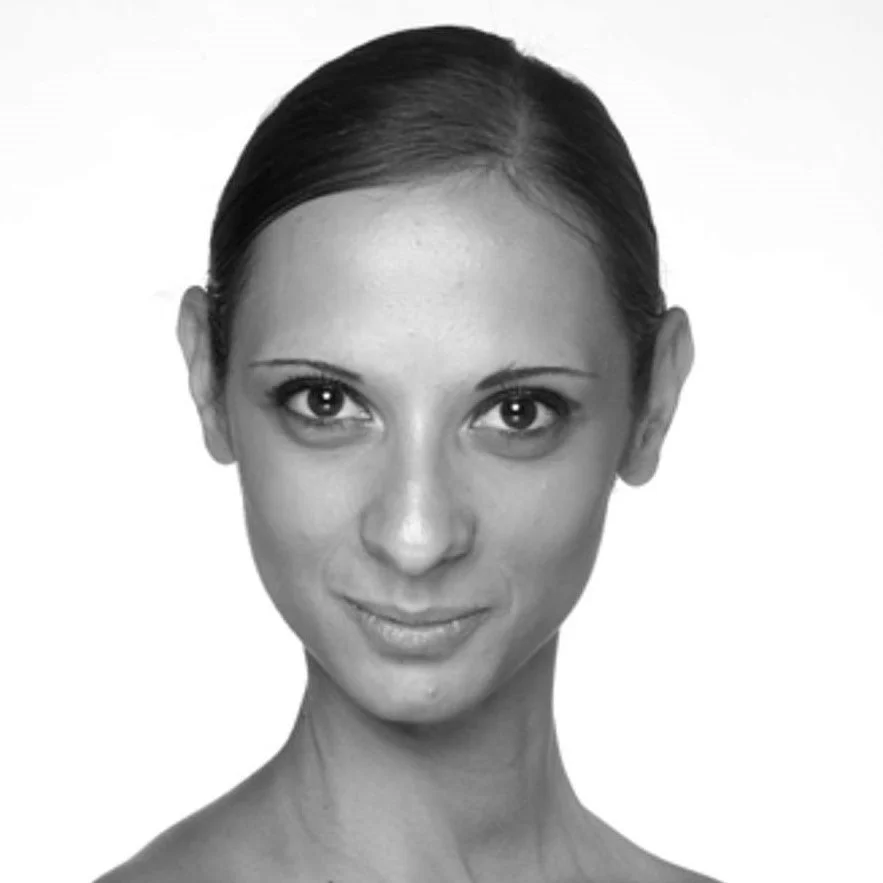 Ana Kipshidze
Ana Kipshidze 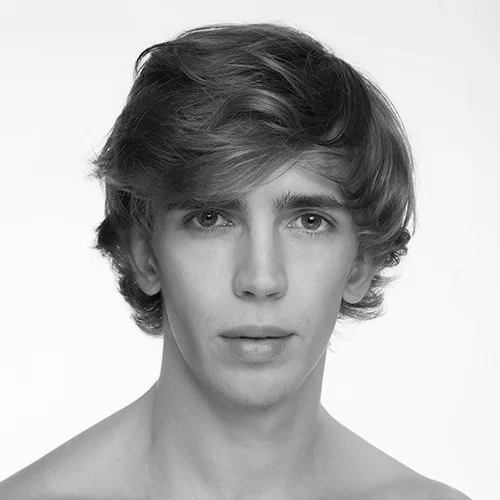 Patryk Walczak
Patryk Walczak  Łukasz Tużnik
Łukasz Tużnik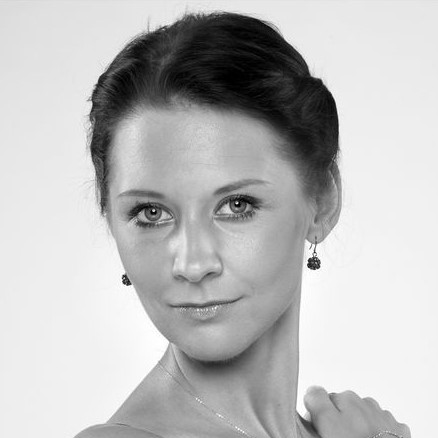 Aneta Zbrzeźniak
Aneta Zbrzeźniak  Mai Kageyama
Mai Kageyama Robin Kent
Robin Kent 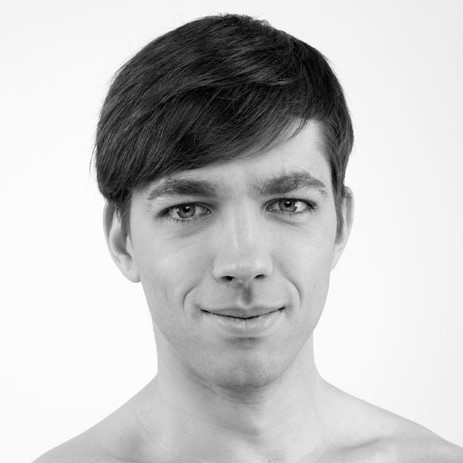 Paweł Koncewoj
Paweł Koncewoj ![[Translate to English:] Maksim Woitiul](/fileadmin/_processed_/3/c/csm_maksim_woitiul_www_mini_45f943f354.jpg) Maksim Woitiul
Maksim Woitiul Dagmara Dryl
Dagmara Dryl Anna Lorenc
Anna Lorenc ![[Translate to English:]](/fileadmin/_processed_/5/9/csm_Bartosz_Zysk_IMG_9055-Edit_-_2025_5eca535a9e.jpg) Bartosz Zyśk
Bartosz Zyśk 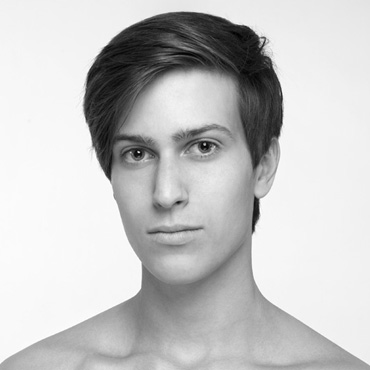 Kristóf Szabó
Kristóf Szabó![[Translate to English:]](/fileadmin/import/media/img/ludzie/tancerze/medium/Vladimir_Yaroshenko_2024_-_kwadrat.jpg) Vladimir Yaroshenko
Vladimir Yaroshenko  Krzysztof Pastor
Krzysztof Pastor ![[Translate to English:]](/fileadmin/_processed_/6/5/csm_Tatyana_van_Walsum_370x370_5b7c75112a.jpg) Tatyana van Walsum
Tatyana van Walsum  Willem Bruls
Willem Bruls  Amanda Eyles
Amanda Eyles  Paul Tyers
Paul Tyers  Bert Dalhuysen
Bert Dalhuysen ![[Translate to English:]](/fileadmin/_processed_/d/9/csm_andriy-yurkevych_370_00f3cf0259.jpg) Andriy Yurkevych
Andriy Yurkevych 



